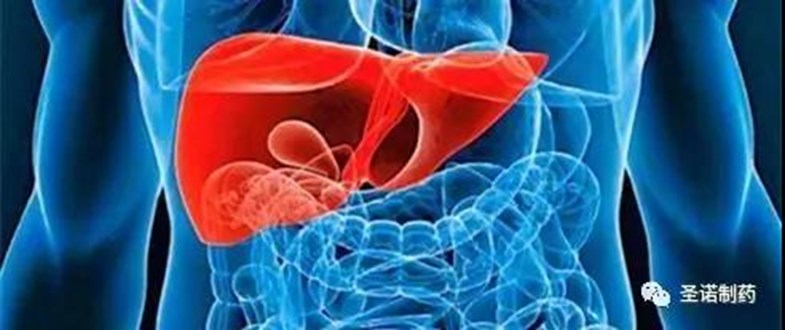Sirnaomics Advances Leading siRNA Therapeutic Candidate, STP705, for Treatment of Liver Fibrosis

Sirnaomics, Inc., a leading biopharmaceutical company in discovery and development of RNAi therapeutics, announces today that it has received reports from efficacy studies with CCL4-Induced mouse liver fibrosis model for its lead siRNA therapeutic candidate, STP705 (Cotsiranib®), from two contract research companies.
Sirnaomics lead product candidate, STP705, is an anti-fibrosis and anti-inflammatory siRNA (small interfering RNA) therapeutic which takes advantage of a dual-targeted inhibitory property and polypeptide nanoparticle (PNP)-enhanced delivery to directly diminish both fibrotic activity and inflammatory activity. The product has currently received both US FDA and Chinese FDA IND approval for Hypertrophic Scar Reduction and it is expected to have efficacy in many diseases across therapeutic areas. The two liver fibrosis animal studies were designed to demonstrate the impact of STP705 on liver function biomarker reduction (AST, ALT, and Total Bilirubin) as well as independent blinded pathology, based on the company’s initial observation of liver histological improvement of STP705 treated mice using the same CCL4 disease induction model.
In the first study, STP705 achieved statistically significant reduction in liver function biomarkers (AST, ALT, and Total Bilirubin) compared to untreated control group, and better efficacy than group treated with OCA (Obeticholic Acid). OCA is an US FDA approved drug for the treatment of patients with Primary Biliary Cholangitis (PBC), and in a clinical phase III study for NASH). The second study demonstrated that STP705 achieved statistically significant reduction in pericelluar fibrosis compared to untreated control group, and equivalent efficacy to group treated with Temisartan (a clinical stage drug for NASH). When studying the modulation of fibrotic liver disease is it necessary to demonstrate both improvement in potential surrogate endpoint marker such as AST, ALT and Total bilirubin as well as demonstration of histological improvement in liver fibrosis which is currently felt to provide more robust evidence of long term disease modulation. Both studies were performed by independent animal research Contract Research Organizations having no affiliation with Sirnaomics, Inc.
“This is a major milestone for Sirnaomics and the results underscore that we are a company with significant promise in the emerging siRNA space,” stated Dr. Patrick Lu, founder and CEO. “We feel strongly that it is our unique delivery system that sets us apart and contributes to the benefits we are witnessing in these independent robust animal liver fibrosis study models. We have a significant portfolio of preclinical IND enabling safety data to support the safety of the platform and we are now witnessing the emergence of encouraging efficacy data across many different disease areas with fibrotic and inflammation disease states being our near-term targets for clinical development. The future looks very encouraging for Sirnaomics and we are very excited to continue our recent significant progress as we move towards multiple clinical programs in 2017 and 2018.”
“This represent a landmark achievement for Sirnaomics and the results validate our previously stated belief that STP705 has the potential to be a game changer and have significant beneficial impact on fibrotic and inflammatory disease conditions across multiple therapeutic areas,” stated Dr. Michael Molyneaux, MD, CMO. “The fact that STP705 was able to demonstrate statistically significant reduction in both liver biomarker measurements and histology evaluation of liver fibrosis in 2 separate independent fibrotic liver disease models is a ground breaking achievement for our company.” Dr. Molyneaux added, “The knowledge gained from these rigorous large scale animal studies will better prepare us for study in humans and support our upcoming IND filings in human liver fibrosis treatment. It is also very encouraging to see the product is well tolerated in the animal studies with no difference being demonstrated in safety metrics between control groups and treatment groups.”
“These results support the underlying mechanism of action that is the foundation of this program. With these findings, an efficient development strategy can be refined, advancing STP705 into clinical study, FDA review and patient care”, observed Brian E. Harvey, MD, PhD, retired FDA Gastroenterology Division Director and advisor to Sirnaomics. “With the new commitment by FDA to Biomarkers under the recently passed 21stCentury Cures Act, STP705 is positioned to take advantage of the evolving regulatory paradigm in the U.S.”

About Liver Fibrosis
Fibrosis of the liver and its end stage, cirrhosis, represents a massive public health burden throughout the world with increasing incidence on a global scale. In the West, the main causes of liver fibrosis are chronic hepatitis C infection, alcohol consumption and NASH (non-alcoholic steatohepatitis). In the Middle East and Asia, viral hepatitis predominates as the major causes of liver fibrosis leading to end stage liver disease. The recent changing patterns of alcohol consumption in the West and the increasing incidence of the metabolic syndrome suggests that the rapid advances in preventing and treating viral hepatitis may be offset by an increasing burden of fibrosis and cirrhosis related to alcohol and NASH. The therapeutic options for the treatment of liver fibrosis and cirrhosis is severely limited and is related to two main broad categories. Removal of the underlying injurious stimulus when possible, such as viral eradication in hepatitis B- and C-mediated liver disease, and Liver transplantation. The recent advances in the treatment of viral hepatitis and the expected shift toward non-viral causes of liver fibrosis, highlights the urgent need for effective anti-fibrotic therapies.
About STP705
STP705 is composed of two siRNA oligonucleotides, targeting TGF-β1 and COX-2 mRNA respectively, and formulated in nanoparticles with Histidine-Lysine Co-Polymer (HKP) peptide. Each individual siRNA was demonstrated to inhibit the expression of their target mRNAs and combining the two siRNA’s produces a synergistic effect that diminishes pro-fibrogenic and pro-inflammatory factors. Molecular analyses of the effects of administering the combination demonstrated that the inhibition of these targets had effects on downstream gene products associated with fibrosis including: α-SMA, Col1A1, and Col3A1. Additional data suggest that reductions in TGF-β1 and COX-2 led to a proapoptotic effect in fibroblasts. These observations suggest that STP705 has the potential for broad application in many inflammatory and fibrotic driven disease states.
Sirnaomics, Inc., a leading privately held biopharmaceutical company for discovery and development of RNAi therapeutics, is a Delaware corporation headquartered in Gaithersburg, Maryland, USA, with subsidiaries in Suzhou and Guangzhou, China. The Company’s mission is to develop novel therapeutics to alleviate human suffering and advance patient care in areas of high unmet medical need. The guiding principles of the company are: Innovation, Global Vision with a Patient Centered focus. Members of the senior management team have a great deal of combined experience in the biopharmaceutical industry, financial, clinical and business management in both the USA and China. The company is supported by funding from institutional investors and corporate partnerships. Sirnaomics has developed a strong portfolio of intellectual property with an enriched product pipeline. The therapeutic areas of focus include oncology and anti-fibrotic therapeutics. Learn more at www.sirnaomics.com.





 Back to Press Release
Back to Press Release
 Previous
Previous
